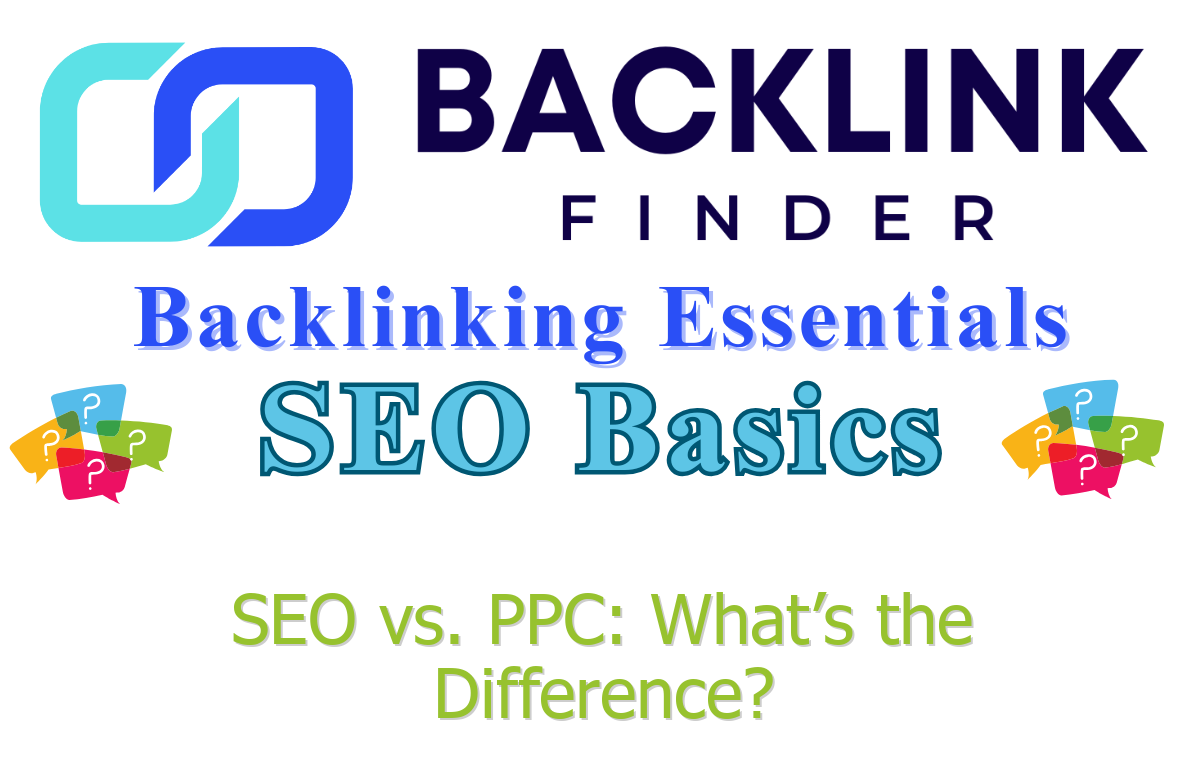SEO vs. PPC: What’s the Difference?

Ever wondered how websites climb to the top of Google’s search results? Or why some businesses seem to pop up instantly with shiny ads? That’s the magic—or rather, the strategy—of SEO and PPC. If you’re new to digital marketing, these terms might sound like alphabet soup, but don’t worry. Let’s break them down, compare them like apples and oranges, and help you understand which might work for your goals. Ready? Let’s dive in!
What Is SEO?
SEO, or Search Engine Optimization, is like planting a garden. You sow seeds—keywords, content, and links—and nurture them over time to grow your website’s visibility on search engines like Google. The goal? To rank higher in organic (non-paid) search results.
Think of Google as a librarian who recommends books (websites) based on what’s most relevant to your query. SEO is about making your “book” the one they pick first. It involves tweaking your website’s content, structure, and even its reputation (through backlinks) to signal trustworthiness.
- Example: A bakery optimizes its blog post about “gluten-free cupcakes” with the right keywords. After a few months, it ranks on Google’s first page, drawing in curious bakers.
- Stat: The #1 organic result on Google gets about 30% of all clicks, per Backlinko studies.
What Is PPC?
PPC, or Pay-Per-Click, is like renting a billboard. You pay for ad space on search engines or websites, and you’re charged each time someone clicks your ad. It’s instant visibility—no waiting for seeds to sprout. Google Ads is the big player here, letting you bid on keywords to appear above organic results.
Imagine PPC as a shortcut: you’re paying to cut the line. Those “Sponsored” links at the top of Google? That’s PPC in action. You control the budget, target specific audiences, and see results fast.
- Example: That same bakery runs a Google Ad for “gluten-free cupcakes near me.” It appears at the top of searches instantly, driving clicks to their order page.
- Stat: PPC ads can boost brand awareness by up to 80%, according to Google’s own data.
How Do They Compare?
SEO and PPC both aim to get you seen, but they’re different beasts. Let’s put them head-to-head:
- Speed: PPC is lightning-fast—you can launch an ad today and see clicks tonight. SEO is a slow burn, often taking 3–6 months to see solid rankings.
- Cost: SEO feels “free” but demands time, tools, and effort (like writing blogs or building links). PPC requires a direct budget, with costs varying by keyword competition. For instance, “car insurance” clicks can cost $50 a pop!
- Longevity: SEO builds lasting value—rankings can stick around for years. PPC stops the second your budget runs dry.
- Control: PPC lets you target specific locations, times, or devices. SEO is broader, relying on Google’s algorithm to decide who sees you.
Here’s an analogy: SEO is like cooking a homemade meal—takes time, but it’s sustainable. PPC is like ordering takeout—quick and tasty, but you’re paying for every bite.
Which Should Beginners Choose?
Good news: you don’t have to pick one! But understanding your needs helps. Here’s a quick guide:
- Choose SEO if: You’re in it for the long haul, have time to create content, or want steady traffic without ongoing ad spend. Start with simple steps like researching keywords or optimizing your site’s titles.
- Choose PPC if: You need instant traffic (say, for a product launch) or want to test what your audience clicks on. Beginners can dip their toes with a small budget, like $50, on Google Ads.
- Combine them if: You want the best of both worlds. Use PPC to drive quick wins while your SEO grows. Many businesses do this!
Pro tip: Tools like Backlink Finder, with its 400,000+ marketplace listings, can supercharge your SEO by helping you find guest post opportunities or keyword-optimized backlinks. It’s a beginner-friendly way to boost your “garden.”
Busting a Myth
Some folks think PPC boosts your SEO rankings. Nope! Google keeps them separate—paying for ads won’t make your organic results climb. That said, PPC data (like which keywords get clicks) can guide your SEO strategy. Smart, right?
Getting Started: Beginner Steps
Feeling inspired? Here’s how to dip your toes into both:
- For SEO:
- For PPC:
- Sign up for Google Ads (it’s free to start).
- Choose a low-competition keyword (e.g., “local yoga classes” vs. “yoga”).
- Set a daily budget of $5–10 and write a short ad with a clear call-to-action, like “Book Now!”
SEO is a long game, but it’s worth it for sustainable growth. PPC? Great for quick wins, but don’t rely on it alone. Blend both for max impact! #SEO #PPC #DigitalMarketing— Aleyda Solis (@aleyda) March 1, 2020
Aleyda nails it—balance is key. Her tweet reminds us why blending SEO and PPC can cover all your bases as a beginner.
Common Mistakes to Avoid
Beginners, watch out for these traps:
- SEO: Stuffing keywords unnaturally (e.g., “Buy shoes, best shoes, cheap shoes”). It annoys readers and Google.
- PPC: Bidding on super broad keywords (like “shoes”). You’ll burn cash without targeted clicks. Go specific, like “men’s running shoes Denver.”
- Both: Ignoring analytics. Use free tools like Google Analytics to track what’s working!
Further Reading
Want to dig deeper? Check out these beginner-friendly resources:
- Moz’s Beginner’s Guide to SEO – A step-by-step intro to ranking higher.
- Ahrefs’ Guide to PPC Marketing – Clear tips on starting ads without wasting money.
- Search Engine Land: SEO vs. PPC – A deeper comparison with real-world examples.

